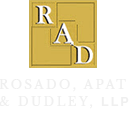Non-Compete Agreements, Part 1
The phone rings and your client tells you he has been served with a summons and complaint alleging he has violated a non-compete agreement he had with his former employer. Most employees unless they are at the higher levels of compensation will not seek private counsel to review these agreements before signing them.
Unfortunately your client did not understand the implications of the agreement when signing it and did not consult counsel when starting a new job with a competing company or opening their own company.
Even agreements which seem clear and unambiguous can often be subject to varying interpretation based upon the industry involved, whether or not trade secrets are involved, whether confidential customer lists are really confidential and whether or not activity your client has engaged in was actually prohibited by the agreement.
Non-Compete Agreements
More often than not, we see these agreements at the litigation stage when the facts have already transpired. In today’s electronic age, transactions are often documented by e-mails and other forms of electronic media and communication.
Many of these cases are litigated in Federal District Court, however in both District Court as well as in State Court.
Most of these agreements provide for injunctive relief if violated. The requirements for a preliminary injunction are: 1) a likelihood of ultimate success on the merits, (2) irreparable injury absent the granting of the preliminary injunction, and (3) a balancing of equities in favor of the movant’s position (see Family-Friendly Media, Inc. v. Recorder Tel. Network, 74 A.D.3d 738, 739, 903 N.Y.S.2d 80; Glorious Temple Church of God in Christ v. Dean Holding Corp., 35 A.D.3d 806, 807, 828 N.Y.S.2d 442). “A party seeking the drastic remedy of a preliminary injunction must establish a clear right to that relief under the law and the undisputed facts” (Omakaze Sushi Rest., Inc. v. Ngan Kam Lee, 57 A.D.3d 497, 497, 868 N.Y.S.2d 726). Radiology Associates of Poughkeepsie, PLLC v. Drocea, 87 A.D.3d 1121, 930 N.Y.S.2d 594, 2011
Another complicating factor in this litigation is that the employer often times makes the case personal and pursues the case beyond what they are entitled to just for the purpose of hurting the former employee who they feel has betrayed their trust.
Given the fact that the employer usually has far superior resources and that this type of litigation has many forms of disclosure available, (notices to admit, notices for document production, interrogatory demands, bills of particular etc.) it is very easy for the employer to try and crush their opponent.
Representing a client in this position, who is facing the stress of this litigation can be challenging. The client must know they are in good hands and reminded on a regular basis what to expect in these cases.
In future articles on this topic we will explore the law related to this area, practical suggestions and techniques for discovery, depositions, trial preparation and the actual trial.
Editor’s Note: Richard H. Apat is a partner in the firm of Rosado, Apat & Dudley, LLP, with offices in Freeport and the Bronx.









